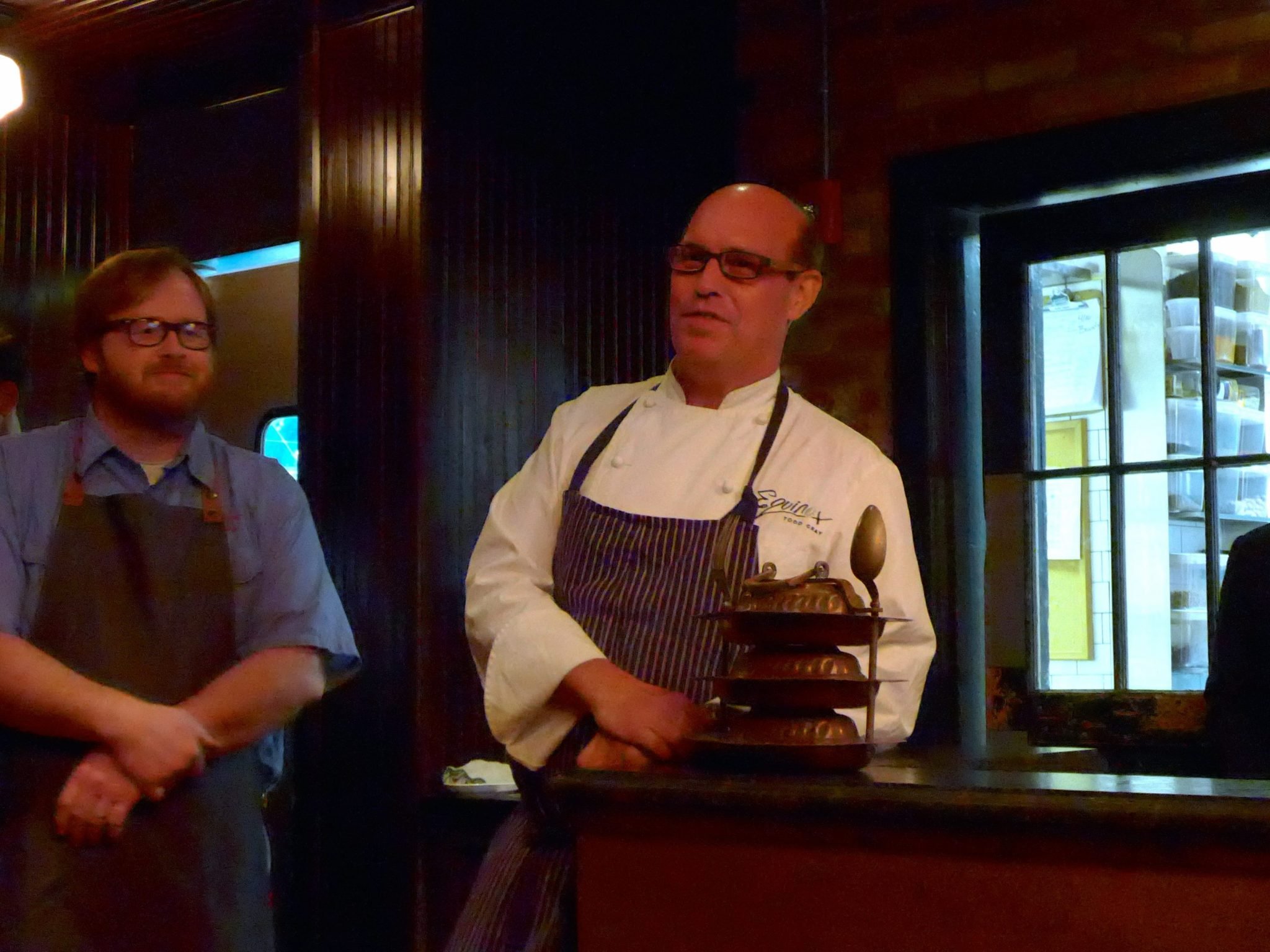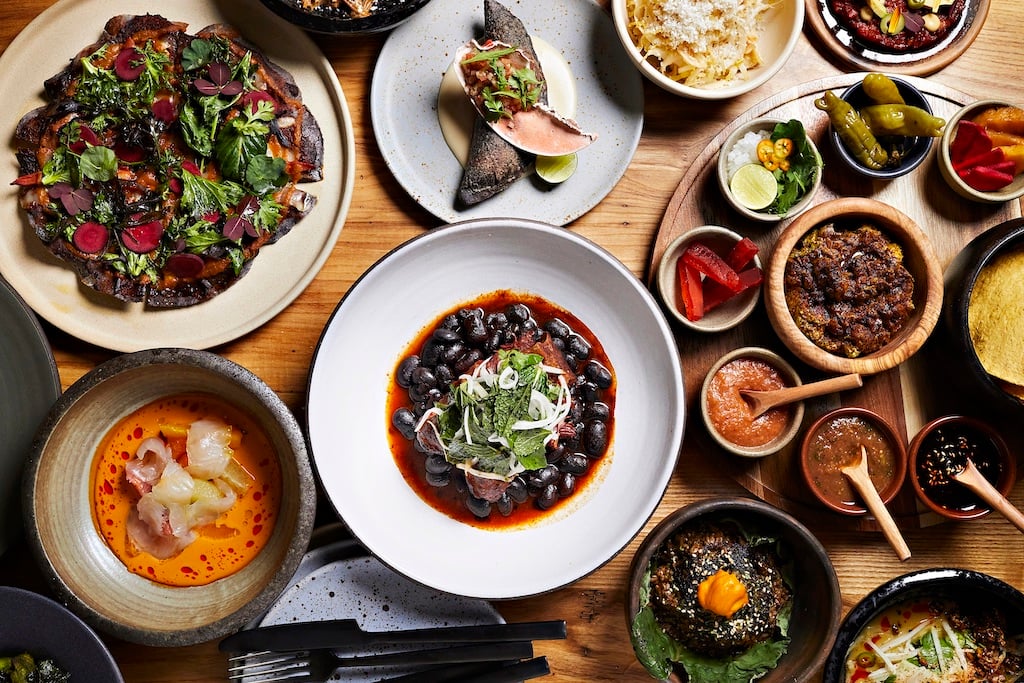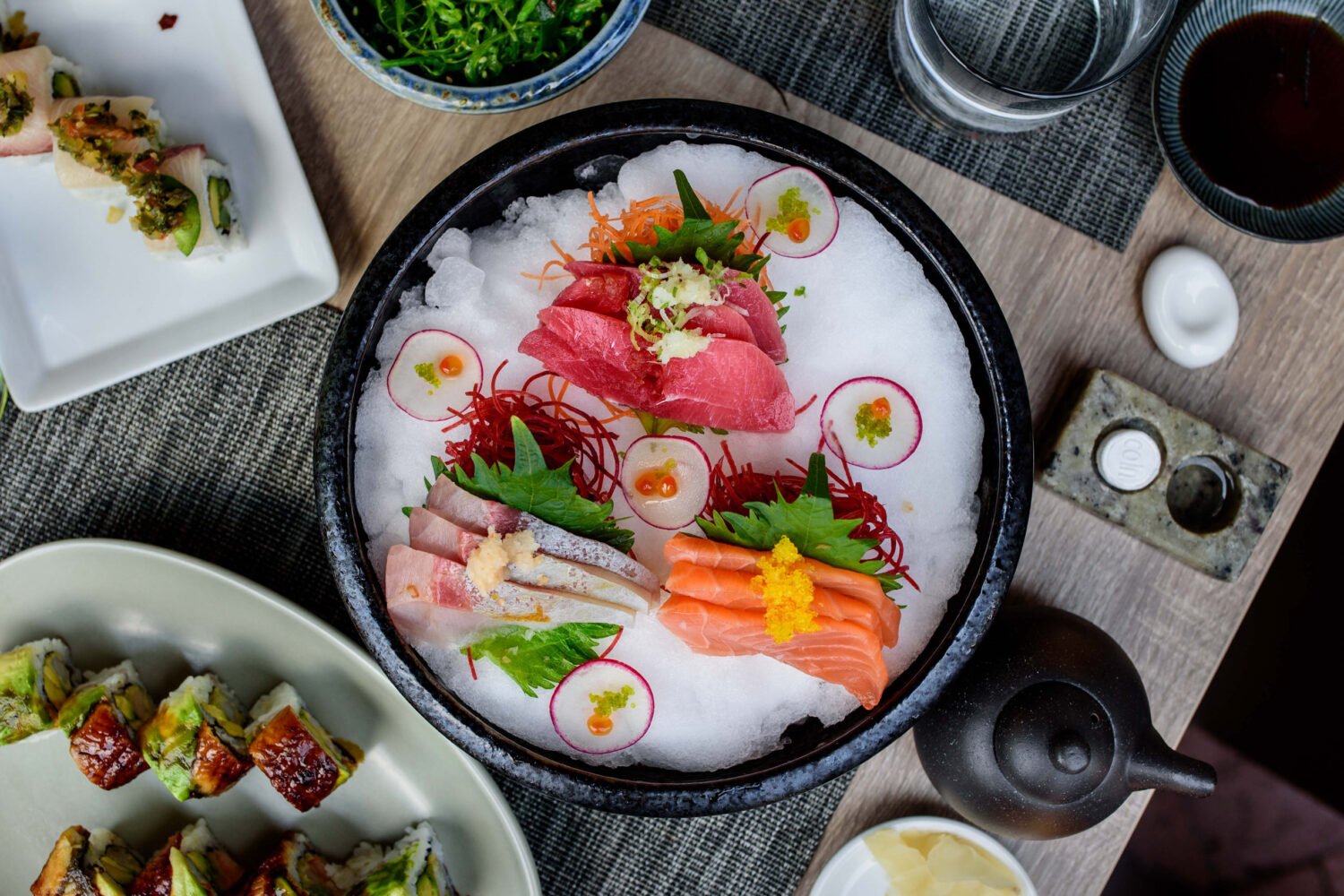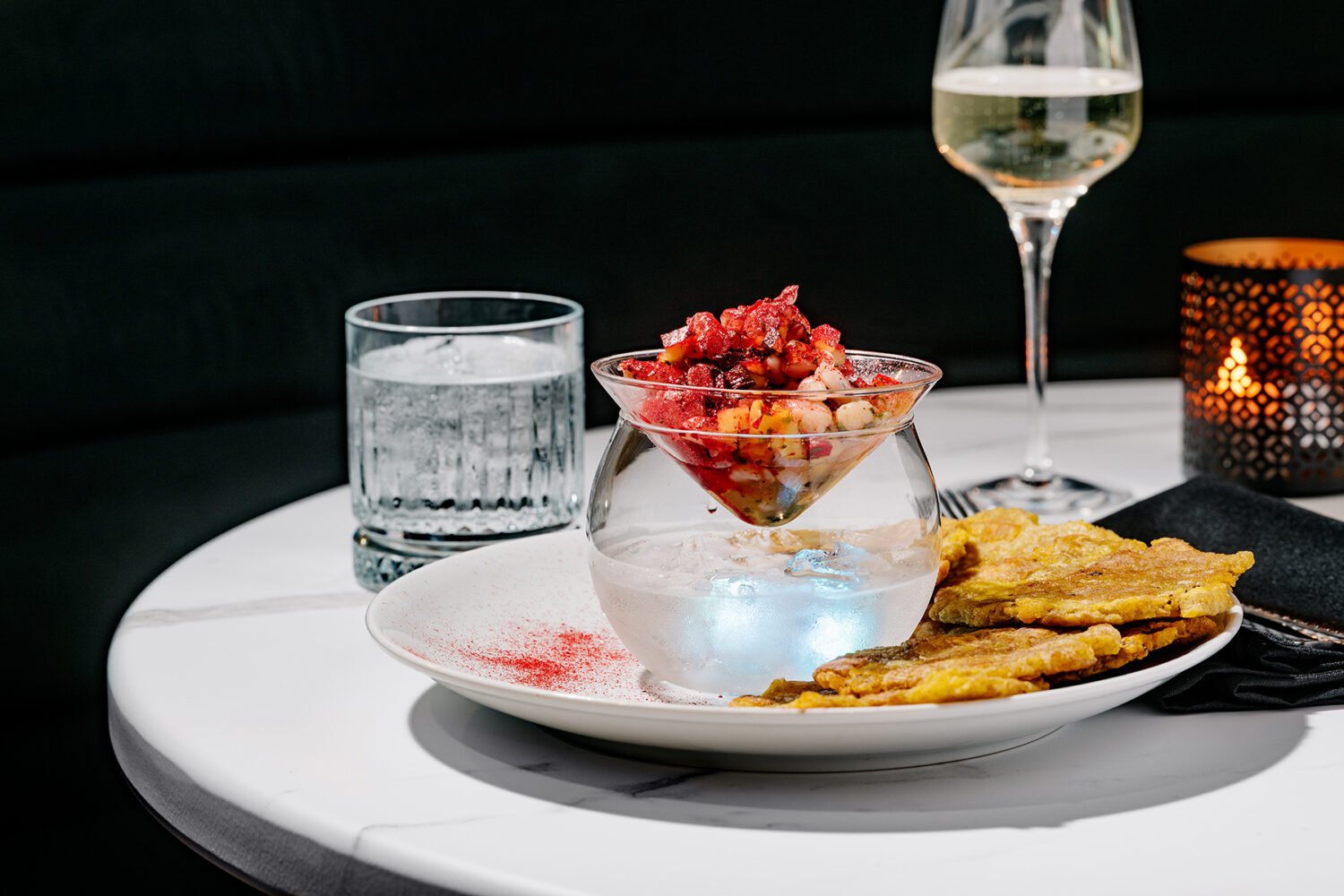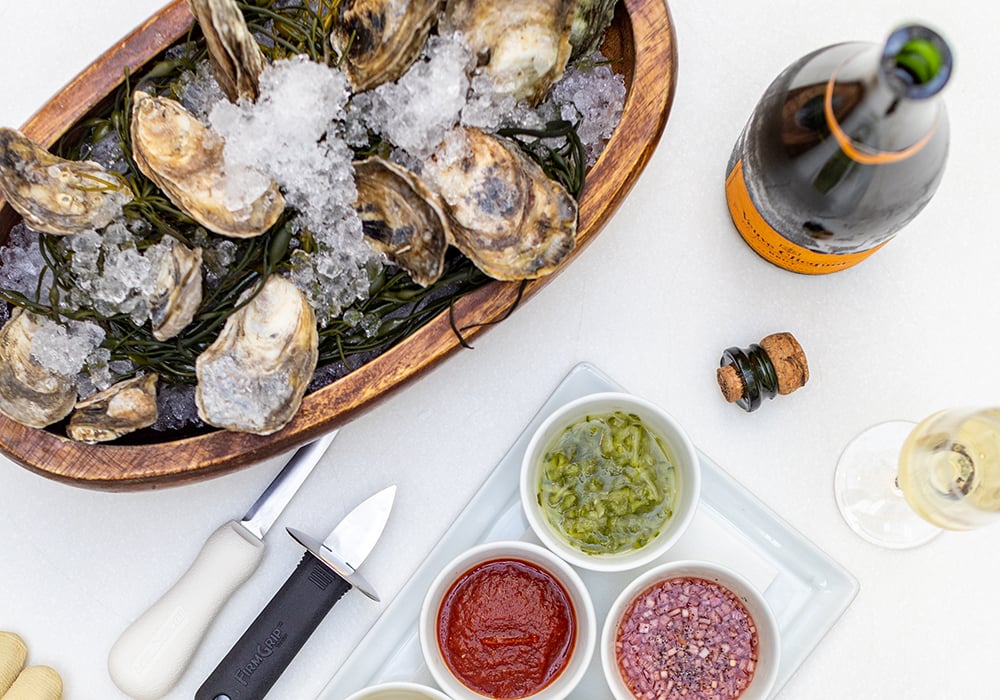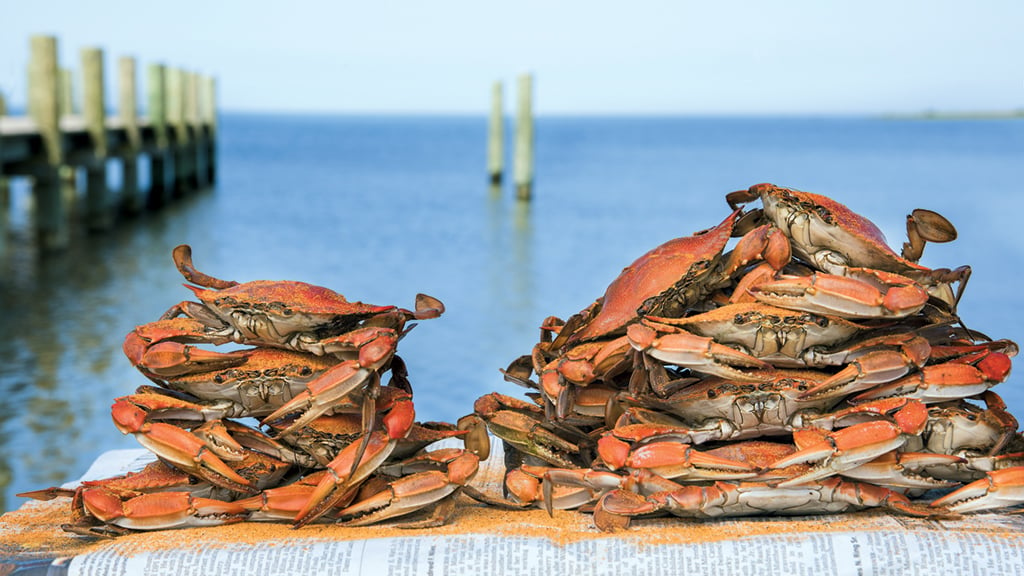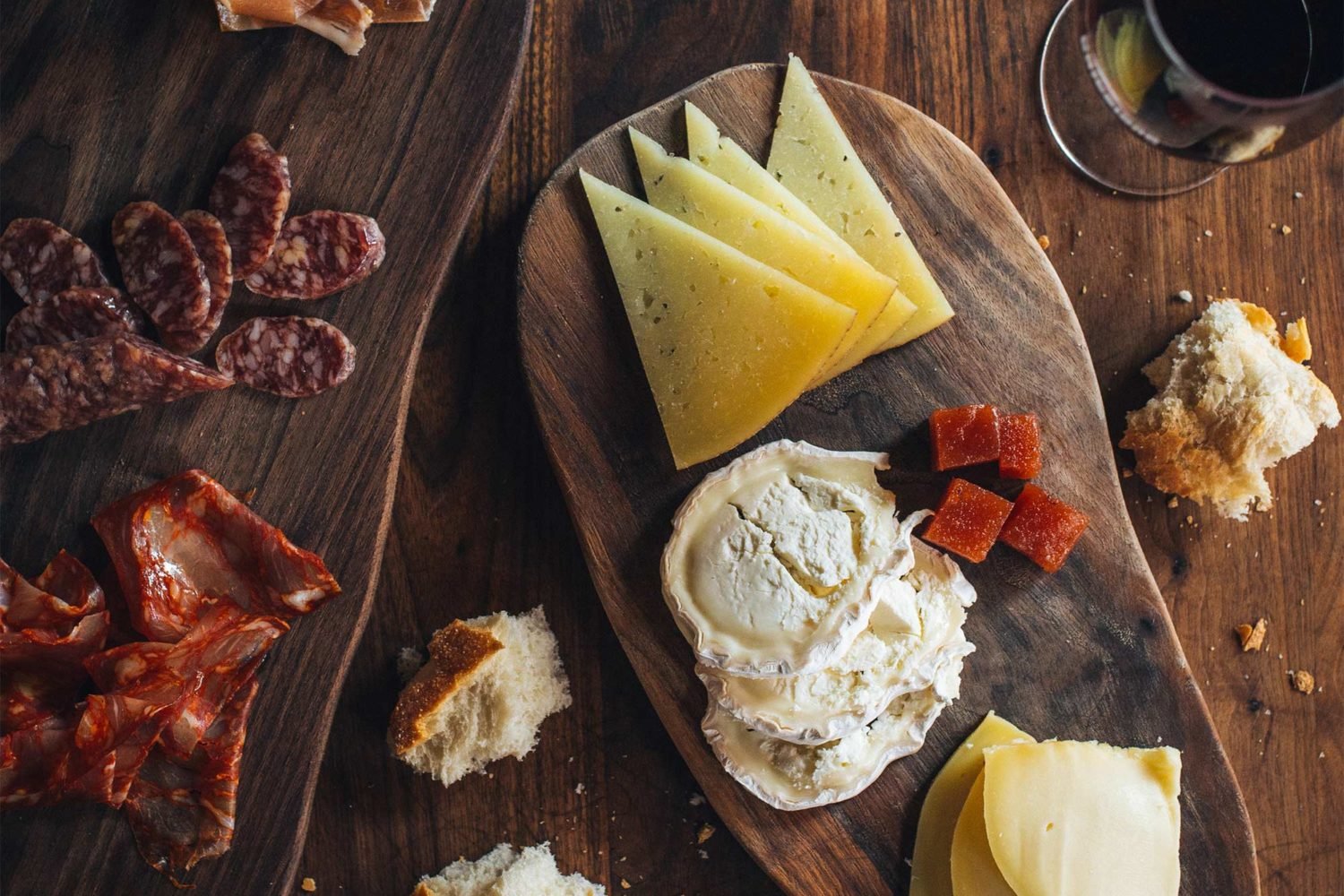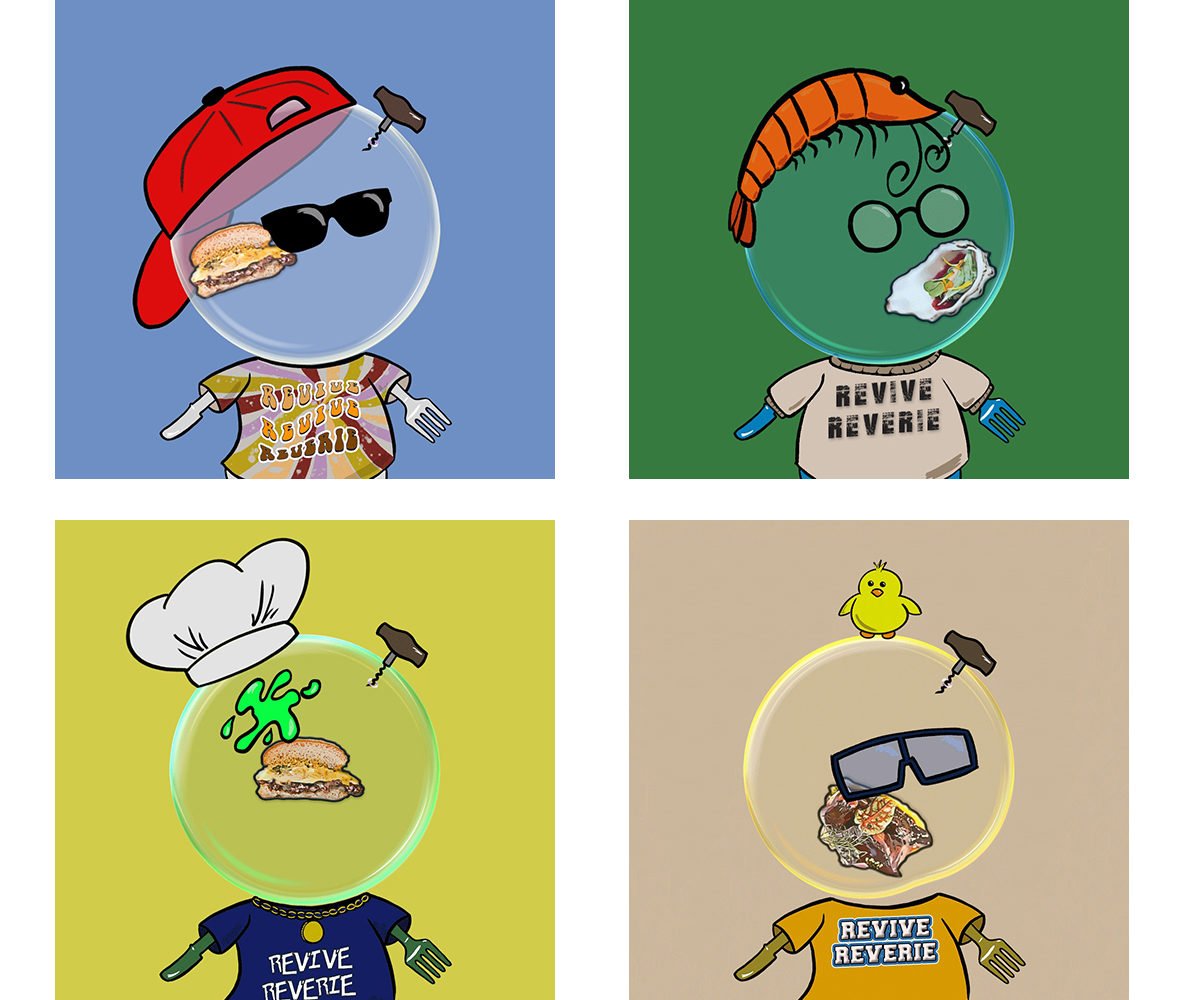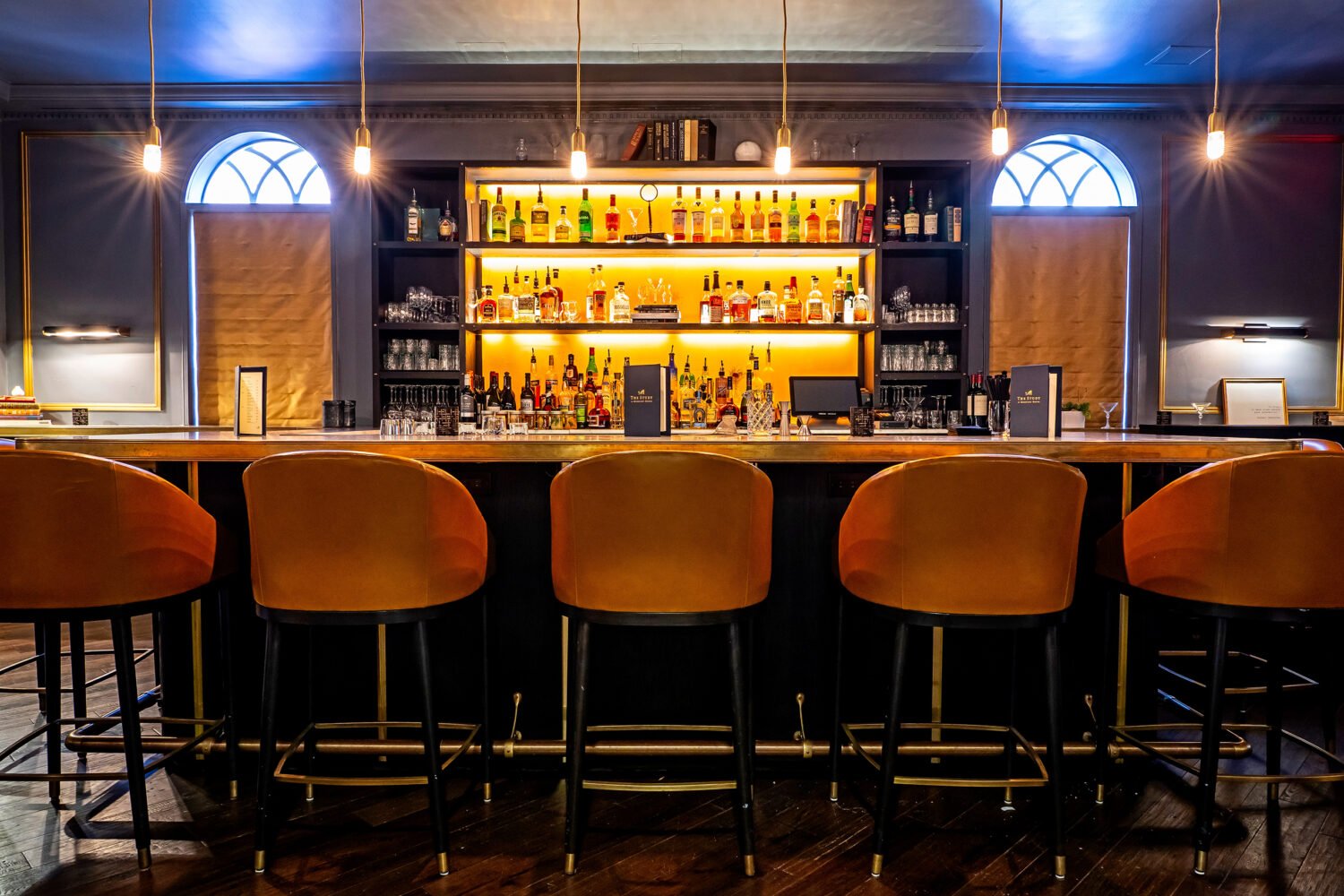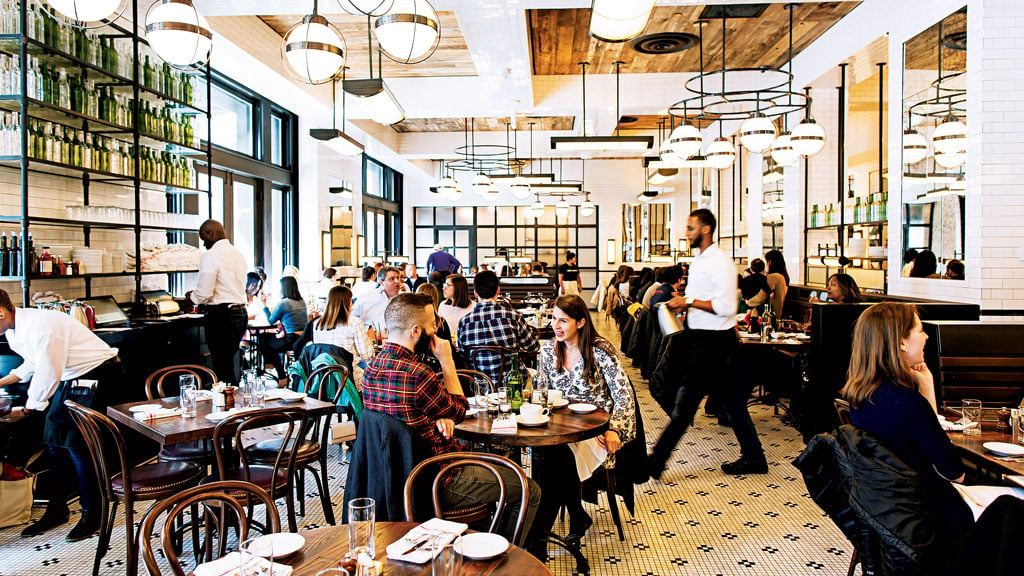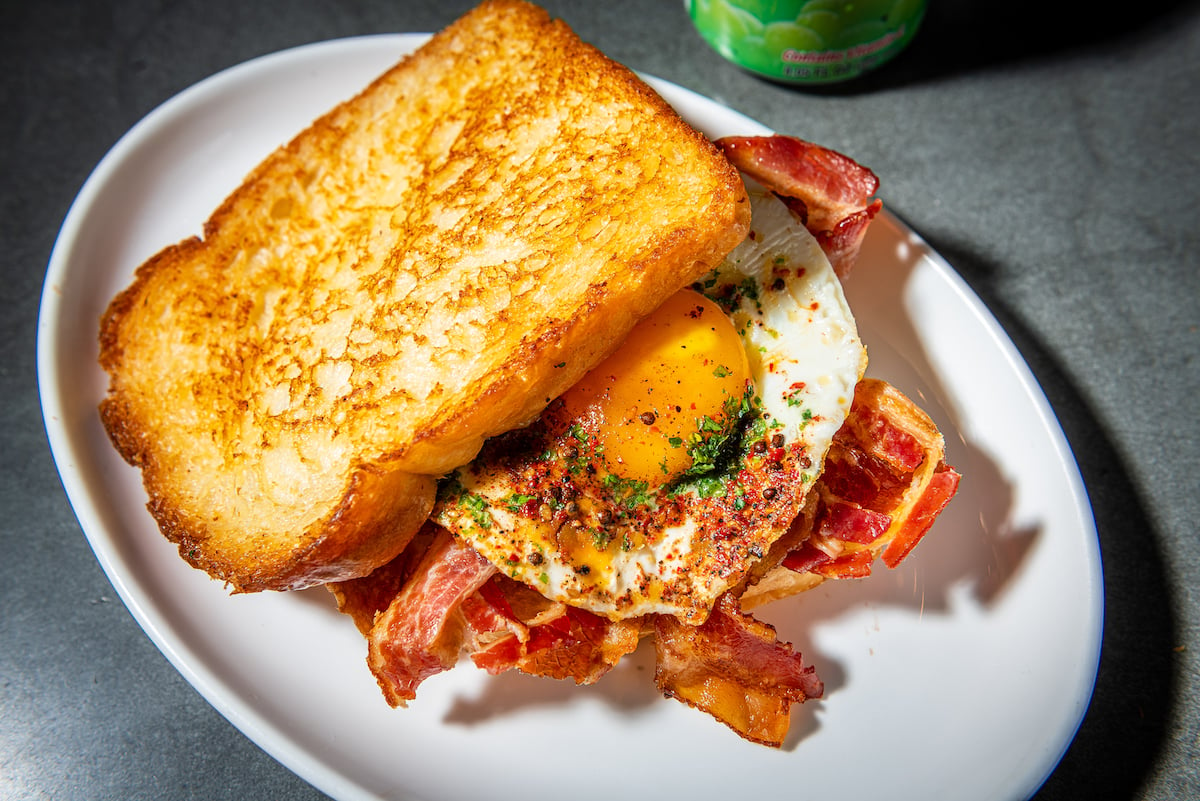How can you tell a great kitchen? Food aside, look at the chefs it produces. When Todd Gray opened Equinox in 1999, his kitchen was at the forefront of DC’s fledgling local and seasonal movement, and attracted a team of talented cooks who’d then go on to run some of the top restaurants in Washington.
A core group from Equinox’s early days gathered with Gray on Thursday evening for a reunion dinner at Iron Gate, which included host chef Anthony Chittum, Barry Koslow (Pinea), Miles Vaden (Passionfish), Brendan Cox (Oakleaf in NC, formerly DC Coast), and Ethan McKee (Urbana) among others. We caught up with Gray and Chittum to talk about cultivating talent, DC’s cook shortage, and how to build the next generation of great chefs.
Equinox has produced a whole roster of top chefs. What makes that possible?
Gray: I always look back on how I was trained. You have to lead by example and inspire. I was always inspired—my days working at La Colline, I was hugely inspired by Jean-Louis [Palladin]. Who wasn’t? Every time he was in the room, we were mesmerized by his love for food and drink. And of course, Roberto [Donna], who groomed that desire and passion. You want to let a chef be creative, and express their creativeness, but also teach them about food cost, leadership, and how to be profitable. Without all that, it’s nothing. Cooking is the easiest part. If you have a decent palate and you have a love for food, cooking is easy. It’s the money, the leadership, and the management that are hard. I try to pass all that on.
Chittum: I was lucky. The learning curve was big. Todd’s work with [Roberto Donna’s] Galileo, and his training, he taught us new ways to look at food and seasonality. The opportunities were wide open. Todd was really good at teaching everybody, but it was also a competition for a lot of us—learn, improve, especially between Brendan [Cox] and I towards the end.
What was it like coming up as a restaurant owner and young cook in 1999, and how is it different from today?
Gray: Chefs weren’t opening restaurants! We were fortunate to find money. It was a different time. I don’t remember another [major restaurant] opening for nine months to a year [after Equinox]. Bob Kinkead, Jeff Buben, Roberto Donna, Jean-Louis, Francesco Ricchi, Michel Richard—those guys ruled the town. You went to work for those people, you didn’t open your own restaurant.
For us, opening Equinox, it was like a magic carpet ride. We had all of this talent in the kitchen, a great front-of-house. We weren’t going out trying to source managers who worked for other people. Those days, if you took employees from another restaurant, you were doomed. Even when cooks would come from Galileo, Roberto would call me and say, ‘You cannot hire this guy. He’s an asshole. Hire him and I’ll kick your ass.’ When one of my guys left Galileo and came to Equinox, I was like, ‘Listen, you need to go somewhere else and work for six to eight weeks, then I can hire you.’ That was etiquette. I still believe in that—you don’t steal other people’s people. It was a time of integrity.
Chittum: There are so many restaurants now, and so many places opening regularly. Everyone knows it’s hard to find staff these days. As Todd was saying, there used to be a handful of big names and restaurants that excited young chefs, and Equinox was one of them. We were able to have people work there who pushed the bar for everyone.
You mentioned that it’s hard to find staff these days. How do you think that impacts restaurants and the food scene as a whole?
Chittum: I’ve had really great people work for me [at Iron Gate] since we opened. The opening staff was really good, but I never had a complete team. At this point I have a complete team, but it took two-and-a-half years to do that. It’s hard to find talent. It affects how hard you can push. There’re a million things I’d love to do, but covering two stations, or working seven day weeks with your sous-chefs every day limits what you can do. Back then, because there weren’t as many restaurants—or as many cooks—we all came together with Equinox’s opening, and had a great talent pool.
Gray: These days, in 30 or 40 resumes, you have two winners. And a lot of winners are staging at eight or ten restaurants before making a decision. For us, after 17 years, we have a reputation, but some kids want something newer, or they’re worried I’m not in the kitchen anymore. That’s why I’m here lunch and dinner every day. To draw great talent, you have to be in the kitchen everyday. Even if you have a great chef de cuisine, you gotta be there, because they want to work for you.
We take a lot of people from the inside. We’d rather mature and grow our staff, though people don’t stay forever, it’s the reality of this business. But what’s better? Is it better to take a kid from culinary school who wants to hit restaurants—a year or two here and there before he goes home to Michigan to open his own place—or is it better to take a great young person from your dish pit who can work the line? Maybe they’re not a creative spirit, but they’re a Clydesdale. Is it better to take that Clydesdale and teach, show them new dishes, and have that person evolve? The person who will stay with you for seven, eight, 16 years? What’s better for the restaurant: longevity and stability, or a young kid that can contribute for 15 months? That’s how we look at it.
Chittum: I love that philosophy. It’s working with people and building them up in the restaurant. My first job was a dishwasher. I washed dishes when I was 15, and then I saw the cool guys cooking, and I wanted to cook. I think we have some of that at Iron Gate, and those people who have been there at the beginning.
Todd, from an owners perspective, is it difficult to see talent move on, and do you try to prevent it?
Gray: I was talking to a friend of mine from Galileo one time, complaining, ‘Man, it’s hard to keep good people.’ He said, ‘Todd, you know this: anybody that’s worth a shit is going to leave. We left! Don’t worry about it.’ That’s what it’s like when your name is on the restaurant door, and they came to learn from you and gather experience. You paid them to do a job, they gave you their 60 hours a week. They gave you their life, you gave them their money. They helped your restaurant prosper.
I was always taught to pass on talent—spread the wealth, spread good food. I had people that impacted my career, and to this day, I praise them for it. Everything they taught me, everything they told me I did wrong, and the things they gave me shit for and praised me for. Without them, I’d never be here. Hopefully these guys feel the same. Life’s all about giving back, and I’m happy I could give these guys something.

